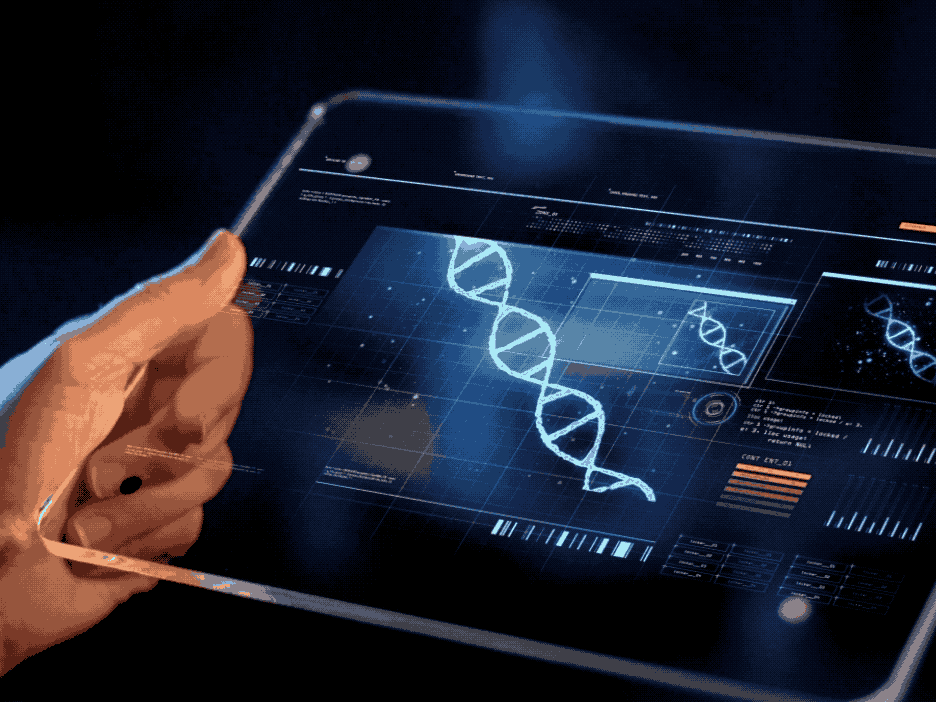- Academics
Bioinformatics, M.S.

Request More Information Apply FAQ
Become a Bioinformatics Leader
Revolutionary changes are taking place in how we interpret health and treat disease. With extraordinary advances in both gene sequencing and machine learning, the bioinformatics field is expanding exponentially and creating a myriad of opportunities for professionals with in-depth knowledge of techniques for mastering complex data.
In NYU Tandon’s Bioinformatics Master of Science program, you will build strong skills in molecular biology and big data analysis. Develop solutions to critical challenges throughout medicine and the life sciences by learning to utilize genomic information and next generation sequence analysis tools.
By creating and advancing algorithms, utilizing computational and statistical techniques, and applying theory, you can solve practical problems that arise in the management of biological data. Prepare to make significant contributions to society through groundbreaking innovations in cancer care, vaccine design, agriculture, and energy.
What Is Bioinformatics?
Bioinformatics is a rapidly growing discipline of science that applies computation and analysis techniques to the collection and interpretation of biology-related data. There is a strong demand for professionals with an advanced education in molecular biology, statistics, programming, machine learning, and sequence and pathway analysis.
Upon completing your bioinformatics degree, you will be well qualified to address important issues in areas such as infectious diseases, public health, genetic diseases, agriculture, and green technology.
Why Choose NYU Tandon?
At NYU Tandon, we are educating and nurturing tomorrow’s biotech rock stars. As a student in our flexible 30-credit program, you will develop the refined skill set necessary for a successful career in bioinformatics and computational biology. Prepare to make an impact on vital challenges such as Alzheimer’s, autism, diabetes, obesity, genetically modified organisms (GMO), and greenhouse gas sequestration.

Student Projects
Curriculum Information
To complete the Bioinformatics M.S. program, students are required to earn 30 total credits and fulfill the following requirements:
- 6 Core Courses (18 credits)
- 1 Capstone Course (3 credits)
- 3 Elective Courses (9 credits)
Each student must complete the requirements of either the Laboratory Science or Translational Science track.
Capstone Project
At least three credits of Capstone course (BI- GY 810X BIOINFORMATICS CAPSTONE) are required to fulfill the M.S. Bioinformatics requirement for graduation. This is a variable credit course from 3cr to 9crs. Which means that you can take it for three or if you have six credits remaining you can take it for the six.
Will Industry internships count for the capstone? If so, what is the process for formalizing that as NYU credits.
Industry internships can count as capstone credits, but the student has to register for capstone BI-810X. If it meets the programs capstone criteria, significant programming component(Python, R, and/Shell scripting). The agreement is formalized between us and the manager/PI. We avoid all agreements that deal with proprietary data.
Students must find the internships themselves (although we will help).
What are the guidelines for the project?
Projects often deal with NGS analysis. Basically, the student demonstrates their skills in a live environment. The Jupyter notebook is used throughout the course for analysis and is submitted as progress updates in Brightspace. This along with guidelines regarding deliverables are strictly enforced.
Is it with academic labs?
Most of our relationships are with academic labs. We don't get involved in legal issues concerning IP.
When should they sign up and how do they find a lab?
Completion of:
- Problem Solving
- NGS
- Applied biostatistics
There are several labs with multiple projects that we work with. We can place students in any of them.
Experiential Learning for Credit
At NYU Tandon experiential learning opportunities provide students the chance to engage in practical, hands-on learning to refine technical and leadership skills. The Bioinformatics M.S. program allows for students to complete various opportunities for credit counting towards degree requirements. In adherence with NYU Tandon Graduate Academic policies, students may not complete more than a combined total of 9 credits of project, guided studies, readings, or thesis toward fulfillment of the MS degree requirements.
Prerequisite Information
As with all of our MS programs, applicants are required to have received a 4-year bachelor’s degree from an accredited institution. We recommend that applicants have a background in either biology/chemistry/a related science OR computer science/another related field. Some applicants have a background in both knowledge areas, but it is not an expectation to gain entrance to the program. For those interested in this program but without the necessary background, please check out our NYU Tandon Bridge course.
Start Your Application
We are here to help!
- Call us at 646.997.4043
- Email us at Tandon.Digital.Learning@nyu.edu
- Text with us by sending JOIN to 877.642.7883


